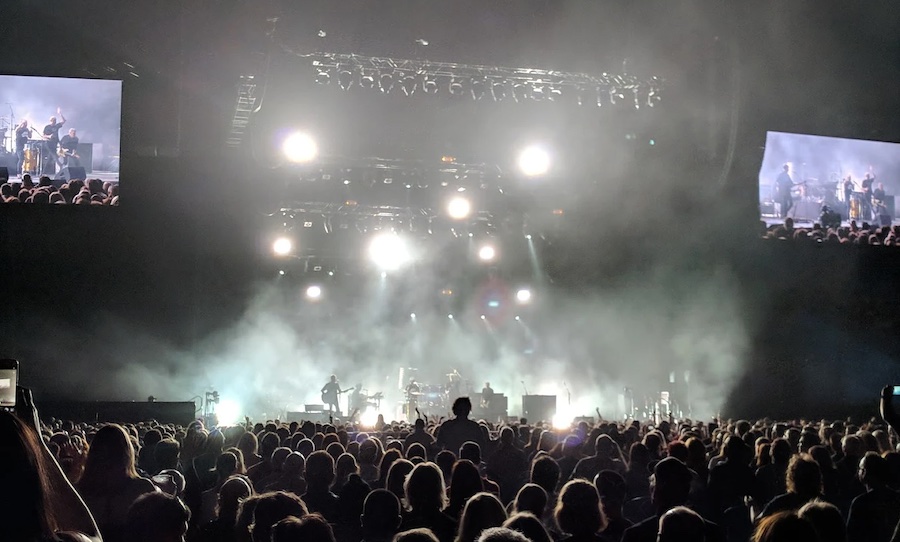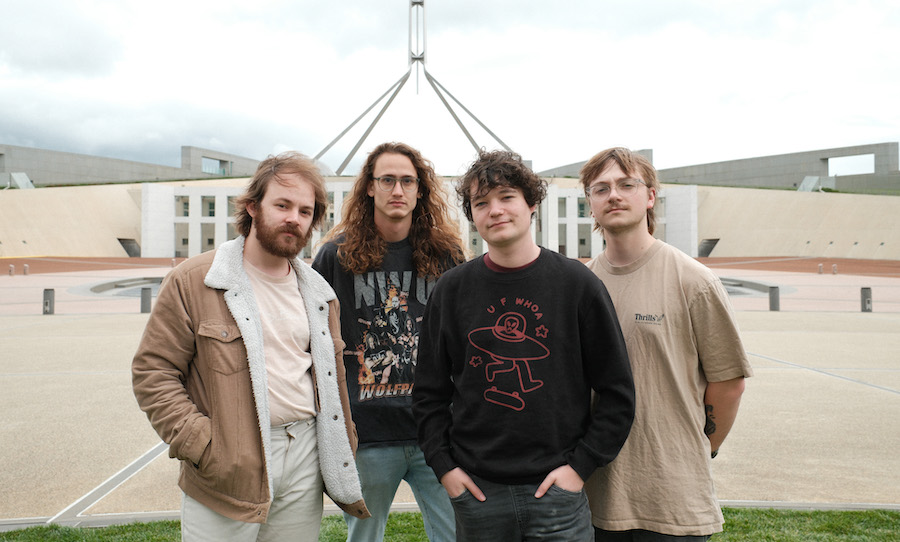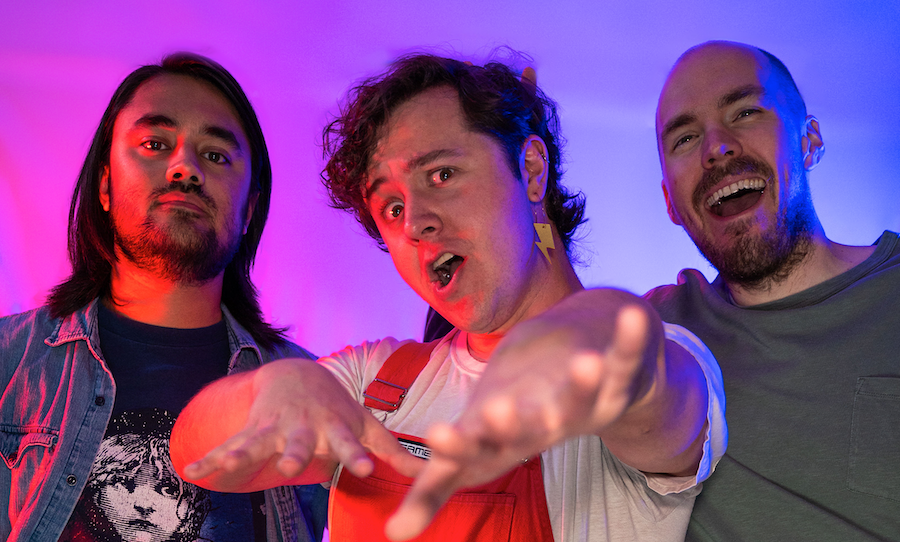A year after the release of their seminal eighth album, we catch up with Birds of Tokyo to break down the intimate release and their upcoming Coopers Live, Loud & Local gig.
For some artists, vulnerability is their muse. For others, it takes a lifetime to truly open themselves up. At the beginning of 2020, Birds of Tokyo completely bared their soul.
Following a painful divorce and struggle with mental health, Ian Kenny spun his agony into a battle cry. Human Noise was that call: striking, intimate, and so incredibly human. On their eighth album, the band didn’t attempt to reach answers, however found peace in the turbulence of now. It is easily their most formidable release to date.
A year post-release, we sat down with Kenny to chat through the album, the sonic inclinations of Quokkas, and his plans for the future.
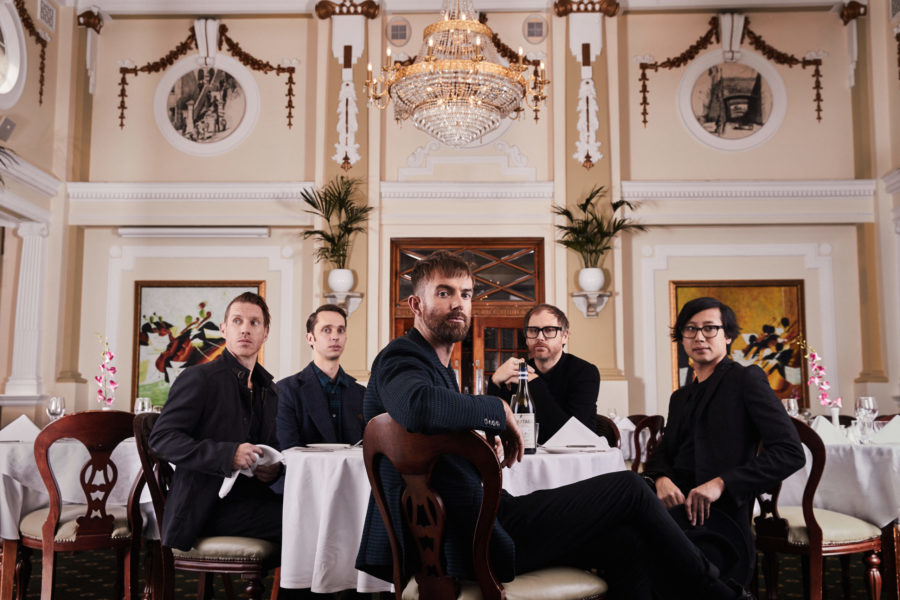
HAPPY: You guys must be so excited for the Coopers Live show that’s coming up, sound so fun!
IAN: Yeah, it’s pretty sweet. They’ve been doing it for a little while now, but it’s really cool. They’ve got the Rottnest Hotel, which is quite an iconic pub in WA, if you’ve ever been to Rottnest? It’s a vibe, a huge vibe. So they’ve basically set up a stage on the beach out the front of the Hotel, and they’ve sort of faced back towards the venue.
HAPPY: Oh amazing.
IAN: Yeah so you’re playing to the beach, you’re playing to the – they’ve got a pretty sweet beer garden there and whatnot. So it just turns into a bit of a mini-festival around a pub. It’s pretty sick.
HAPPY: Oh amazing. Get to play to all the quokkas too, have a great time.
IAN: Absolutely the quokkas will either love it or hate it to be honest.
HAPPY: [Laughs]
IAN: They’ll either love it or hate it! I can’t imagine some rock band playing at 100dB is really a quokkas vibe. And there’ll be all sorts of people around trying to get selfies with them. To be honest, now that I think about it, they’re probably going to give the quokkas the shits.
[Both Laugh]
HAPPY: You never know, quokkas might just turn out to be really big fans of rock music, who knows?
IAN: You never know. If we do get the quokkas to our actual set, I’ll be happy with that.
HAPPY: [Laughs] Well it’s been just over a year since you guys dropped Human Design. Does the album feel any different to you now that you guys have had some time to sit on it?
IAN: It does feel different, and only just recently because we’ve actually now had the chance to go out and tour the songs from that record.
HAPPY: Oh, true.
IAN: We’ve just finished the symphonic tour that went around the country. We played with a bunch of different orchestras from around the country, and we got to play a lot of Human Design on that. So it kind of feels different now because the band has got this feeling that basically… we put out that record in March 2020, and literally two weeks later the country went into lockdown. So we couldn’t go out and really support it and tour it. So yeah, it’s feeling good and the response from our fans, they’ve really dug into that. So yeah feeling good.
HAPPY: Yeah absolutely. Heaps more of your albums, like Human Design, just seem to ripen with age. Have you found the receptions been changed since it’s been out there for a while?
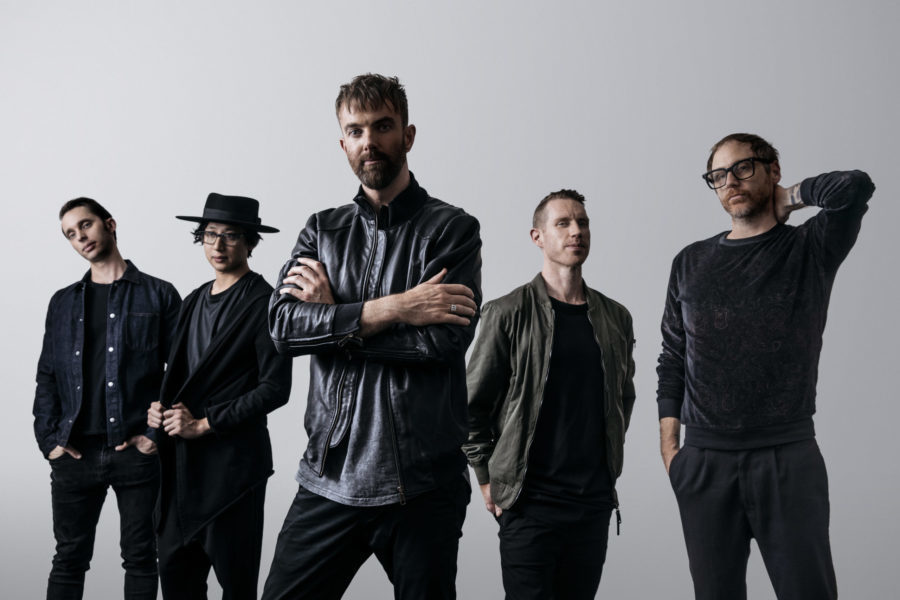
IAN: I think maybe for the band, and for myself definitely, you don’t always have to do it, but if you can, if you just write or create something and kind of open and honest as you can, you can find a space where you’re comfortable enough to show a bit of vulnerability and actually show a bit of yourself in there. It can really resonate with people and effectively, you connect with people. And I think ultimately what we try to do, or what can be wonderful about it, is that if you’re going through something that hurts, it’s guaranteed there’s always someone else.
They’re going to connect, and they’re going to, yeah ultimately you can help them out in some way, so there’s a lot of people that sort of reflected on Human Design, and there’s a lot of people who’ve been in those same shoes. And you know, they’ve walked through the same thing, and ultimately these records, maybe they just help you, or they become a bit of a friend in the background, you know?
HAPPY: Yeah, which must have been so heart-warming for you guys to get that reception, to know that people have been really connecting with it.
IAN: Yeah, it’s been great. Like I said before, we got to actually do that on another level by actually going out and playing the shows and playing songs and just kind of reading the crowd with where they’re at when they see it. It’s been wonderful.
HAPPY: Yeah, was that symphonic tour something you guys had already planned on doing, or was that a bit of a COVID baby?
IAN: No, we had planned this, God, we put about a year’s planning into this. Basically the whole concept, then you’ve got to get the arrangements done, you’ve got figure out how the band – who the band is going to be, singing with the orchestra – find someone to write the score and write it the way we need it to be, so months and months and months of work went into it.
IAN: And yeah, we sort of had to pump the breaks on it initially; it was supposed to go out in April 2020, and we had to just pump all the breaks on that, and here we are. Unfortunately, we had to cancel Sydney, because it was too hard to try and put on shows of that size and then we did it, in Sydney. But the response has been really amazing from that, so chances are, we’re going to get asked to do it again at some point. We’ll see, who knows?
HAPPY: Yeah amazing, amazing. Especially – although everyone has taken a huge hit during Covid – orchestras have really suffered. I’m sure they would’ve been stoked to work on that with you.
IAN: Oh absolutely! I think they were just excited and fighting to play again because basically, say MSO, Melbourne Symphony Orchestra as an example, most of the orchestra hadn’t played a gig since March 2020. So they were just so up for it and they were killer! God, they were so good. They made us look and sound very good, to be honest, but they were killer.
HAPPY: I know that you guys have put out a new single, Weekend, which was in November last year I believe. Was this a cut from the album that didn’t quite make it, or was this a new, fresh release?
IAN: Yeah that was a COVID-baby that one. Absolutely a COVID-baby. Everyone was sort of stuck in their bubble and having time on their hands. And more reflecting about, “hey, where do we want to go when we get through this? What do we want, where is our happy place through all this?” And definitely, I was sort of spending most of that time, I was down in the south-west, hanging out on the coast and surfing, and just basically off tour. And I got a really great sense, and fell in love again with that part of WA, and exactly what that side of life is. And that became, you know, the happy place I focussed on, and that’s literally what Weekend is about. Just getting out and getting away from it.
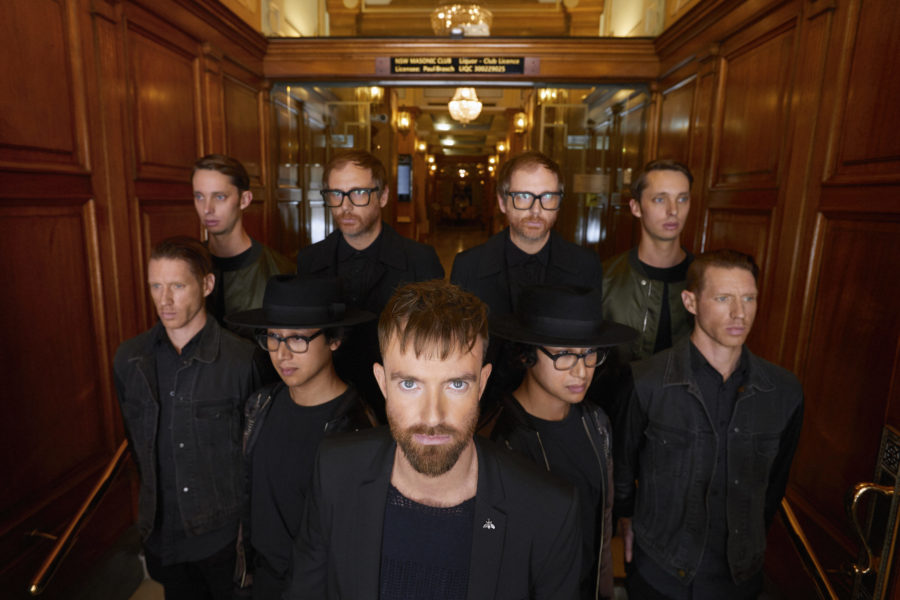
HAPPY: Do you find that a change of scenery is really great for your creative process and writing?
IAN: Yeah it can be, it really can. I mean sometimes, you’re quite effective in the space you know; whether that’s your city, or that’s your studio that you love to go to, or home studio these days. But definitely going out and changing, changing the scene, changing the pace, and vibe, hell yeah it can have a great effect.
HAPPY: Did the last album make you guys re-evaluate or change anything when it came to the writing process, or was it just fleshing out what you already knew in a different light?
IAN: I think the band, once we have an idea, and we think it’s good enough, we kind of usually know what to do. I think what we’ve learnt from this record is, just sort of touching back on what I said, is just if you can find a way to expose the wires a bit in the narrative of the songs, and just those lyrics. If you can find the right words to say exactly how you’re feeling and just be kind of open as you feel confident enough to say, that really connects with people. I normally don’t share too much else, I normally play my shit pretty close to my chest, so just doing it that way this time, the response there was pretty overwhelming actually.
HAPPY: Yeah absolutely. Do you feel like you’re going to continue digging really deep on your songs from now on or do you feel like that was a place and a time with the last album?
IAN: I guess… good question actually. I feel that time and place, but I have learnt how to do that now I think. Or more, I know what that looks like now, if we need to go there, I’ve got a few ways I can approach that. But again, you don’t always have to go deep and meaningful, music is just about creating a vibe and having fun sometimes, so we do that as well.
HAPPY: [Laughs] Yeah absolutely, plus it’s just so hard and a bit draining, even, to dig that deep. It’s worth it in the end, but it’s always like a real slog.
IAN: It’s worth it in the end and the cathartic process can be very freeing and healing, but it takes it out of you, hell yeah.
HAPPY: [Laughs] Yeah absolutely.
IAN: It leaves you with nothing in the tank.
HAPPY: [Laughs] What have you guys, apart from this show, what else have you guys got on the horizon?
IAN: We’ve been writing, we’ve just put a couple of songs together, which we think we’ve probably got a couple of singles out of that. So we’re jumping back into that in a couple of weeks’ time, and then the band is actually going to stay in Perth after this Rottnest show which comes up in April, and we’re going to do some writing in the studio and actually kind of lay some of this stuff down.
HAPPY: Amazing.
IAN: So yeah, as of April we’re back actively writing. We’ve got a few shows coming up mid-year
HAPPY: Oh that must be so exciting. Well, thank you so much for the chat!
IAN: Pleasure, pleasure’s mine, thank you!
Grab your tickets to Coopers Live with Birds of Tokyo here.
Interview by Emily Elvish
Photos by Cybele Malinowski

